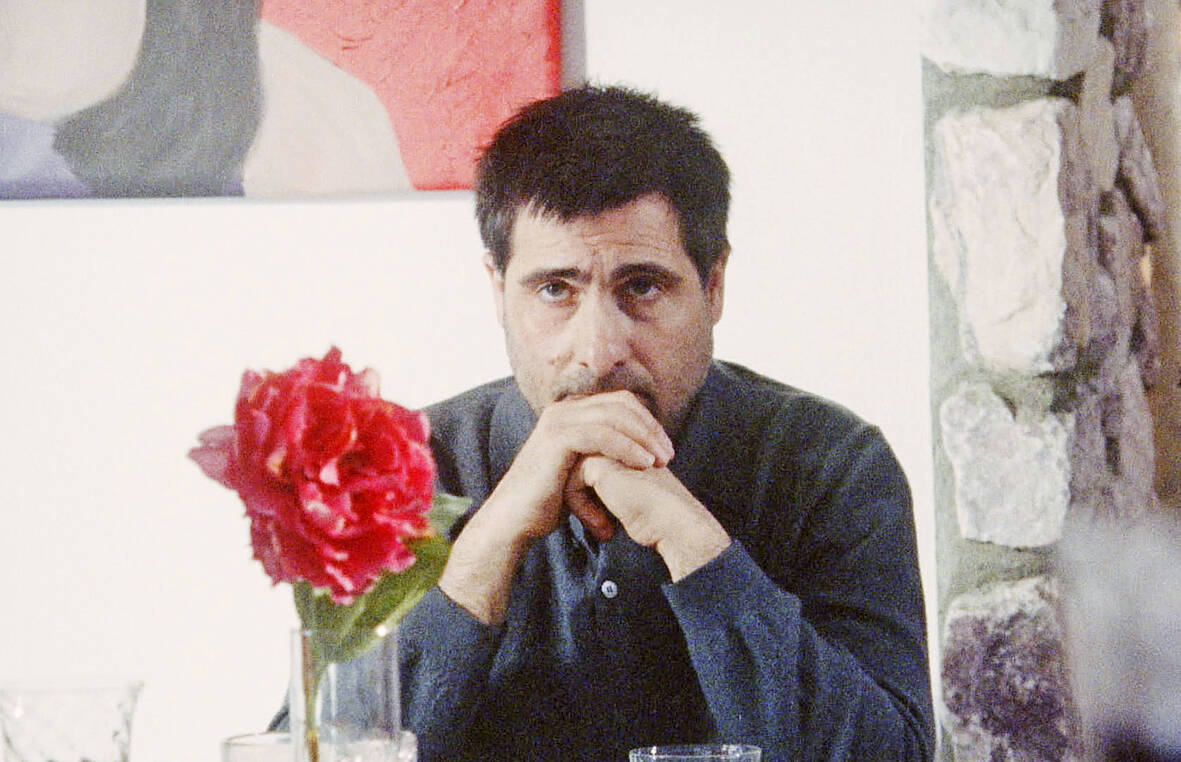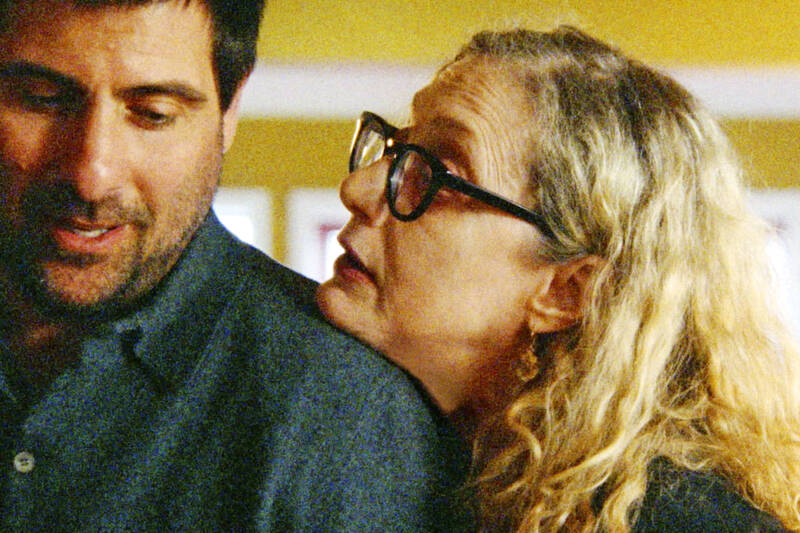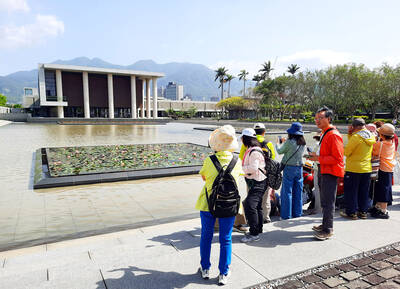In Nathan Silver’s divinely disordered screwball Between the Temples, Jason Schwartzman plays a grieving cantor who, after the death of his wife, can’t sing anymore but who finds a strange kinship with a much older widow ( Carol Kane ) seeking her bat mitzvah.
Yes, that old story. But even that brief synopsis doesn’t really begin to hint at the singularity — or the delight — of Between the Temples. The movie’s grammar — 16mm, improvisational, shot purposeful erratically by Sean Price Williams — is just as antic as its story. In this winningly chaotic comedy, you can almost feel the characters and filmmakers, as one, resisting order and pushing back against convention.
That makes for an experience as volatile and hilarious as it is sweet and profound. That’s particularly due to Schwartzman and Kane who, as a pair with some echoes of Bud Cort and Ruth Gordon in Harold and Maude, make for the best canter-elderly bat mitzvah student duo you’ve ever seen, or, more simply, the most memorable on-screen duo of the year.

Photo: AP
This is Silver’s ninth feature and possibly his finest. Between the Temples, playful, loose and dead set against any moment coming off as too polished or rehearsed, is always very close to falling into shambles. Or maybe it does, perpetually, but has the spirit, or foolhardiness, to keep going. With disaster ever present, Between the Temples ambles its way toward a scruffy, endearing magic of its own.
Ben Gottlieb (Schwartzman) works at a synagogue in upstate New York, but after losing his wife to a freak accident, he’s lost his singing voice and, maybe, his faith. Ben has moved back in with his mother Meira (Caroline Aaron) and her meddlesome wife Judith (Dolly de Leon). In the movie’s opening moments, they set Ben up with a young woman, a doctor. He doesn’t get that this is a date; he assumes she’s a therapist. When he learns she’s a plastic surgeon, he asks his mom: “Do you think I need work done?”
But the work Ben needs goes deeper than that. “Even my name’s in the past tense,” he sighs.

Photo: AP
After listlessly sitting through temple alongside Rabbi Bruce (Robert Smigel, inspired casting), he walks outside and lies down in traffic. Nursing his grief over a mudslide at a bar (a drink the barman perceptively chooses for him), he gets into a fight. After Ben gets clocked, the woman who picks him up, having finished her karaoke performance, is Carla (Carol Kane). She helps him through a drunken night before they realize she was his music teacher in elementary school. “Little Benny!” she exclaims once the memory returns.
Carla soon appears at the synagogue and tells Ben she wants a bar mitzvah. He doesn’t agree until she persists, but they soon find they fluctuate to some similar wavelength of grief and oddballness. Whether she’s an appropriate age for the coming-of-age ceremony is one question, but it’s also not entirely clear if Carla is even Jewish. While the Torah plays a role in the unfolding friendship, their connection — whether it’s love is hard to say — is only partly related to Judaism. They share stories of their dead spouses over burgers that Ben learns, while chewing, aren’t kosher. Silver films the scene in close-ups of their mouths. What seems clearer, in the script by Silver and C. Mason Wells, is that the two are together finding their way through a hard chapter of life and into another of their own making.
Along the way, there are surreal flourishes, moments of supreme awkwardness and comic high points. One scene, with Carla’s skeptical son and his family at a steak house, is adorned with ridiculously large menus. Silver has apparent affection for filmmakers like Rainer Werner Fassbinder and John Cassavetes, but scenes like that one reminded me of Elaine May.
There is a wonderful feeling in Between the Temples that anything can happen at any moment. That’s particularly true in another dinner scene, one sensationally awkward, that brings all the characters together, including the more age-appropriate Gabby (Madeline Weinstein, terrific), the rabbi’s daughter.
Yet in a movie filled with strange noises (Ben’s door shrieks more than creaks) and snuffed-out singing voices, nothing sounds as good as the patter between Kane (who still says “Geez” better than any human being alive) and Schwartzman. The unique rhythm of their voices pushes Between the Temples, a film about finding your own faith, to something beautiful. “Music,” Carla says, “is the sound that you make.”

When the South Vietnamese capital of Saigon fell to the North Vietnamese forces 50 years ago this week, it prompted a mass exodus of some 2 million people — hundreds of thousands fleeing perilously on small boats across open water to escape the communist regime. Many ultimately settled in Southern California’s Orange County in an area now known as “Little Saigon,” not far from Marine Corps Base Camp Pendleton, where the first refugees were airlifted upon reaching the US. The diaspora now also has significant populations in Virginia, Texas and Washington state, as well as in countries including France and Australia.

On April 17, Chinese Nationalist Party (KMT) Chairman Eric Chu (朱立倫) launched a bold campaign to revive and revitalize the KMT base by calling for an impromptu rally at the Taipei prosecutor’s offices to protest recent arrests of KMT recall campaigners over allegations of forgery and fraud involving signatures of dead voters. The protest had no time to apply for permits and was illegal, but that played into the sense of opposition grievance at alleged weaponization of the judiciary by the Democratic Progressive Party (DPP) to “annihilate” the opposition parties. Blamed for faltering recall campaigns and faced with a KMT chair

Article 2 of the Additional Articles of the Constitution of the Republic of China (中華民國憲法增修條文) stipulates that upon a vote of no confidence in the premier, the president can dissolve the legislature within 10 days. If the legislature is dissolved, a new legislative election must be held within 60 days, and the legislators’ terms will then be reckoned from that election. Two weeks ago Taipei Mayor Chiang Wan-an (蔣萬安) of the Chinese Nationalist Party (KMT) proposed that the legislature hold a vote of no confidence in the premier and dare the president to dissolve the legislature. The legislature is currently controlled

Dull functional structures dominate Taiwan’s cityscapes. But that’s slowly changing, thanks to talented architects and patrons with deep pockets. Since the start of the 21st century, the country has gained several alluring landmark buildings, including the two described below. NUNG CHAN MONASTERY Dharma Drum Mountain (法鼓山, DDM) is one of Taiwan’s most prominent religious organizations. Under the leadership of Buddhist Master Sheng Yen (聖嚴), who died in 2009, it developed into an international Buddhist foundation active in the spiritual, cultural and educational spheres. Since 2005, DDM’s principal base has been its sprawling hillside complex in New Taipei City’s Jinshan District (金山). But